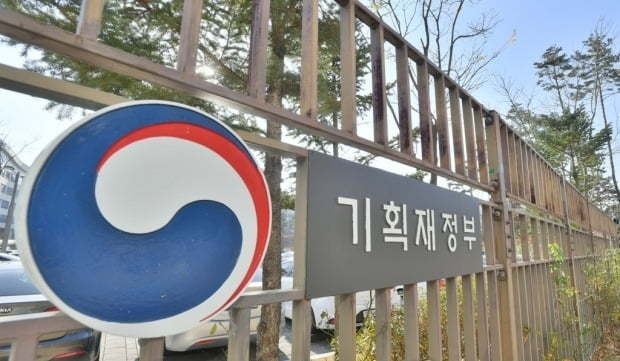Korea to expand foreign workforce quota, seek fast entry
By Kim Yon-sePublished : Aug. 8, 2022 - 16:40

SEJONG -- South Korea will push for fast inbound entry of foreign workers and expand quota for businesses to hire foreign workforces to resolve overall manpower shortages in the industrial sector, economic policymakers said Monday.
The government plans to seek fast entry of 42,000 foreign workers, whose immigration process have been delayed during the period between 2020 and the first half of 2022. In addition, immigration checks for 20,000 expatriates, who are destined to visit Korea on work visas in the second half of 2022, will be streamlined, according to the Finance Ministry.
“As for industries, which have additional demand for manpower despite the fast entry, the government will expand the quota for foreign workers in August, and determine the quota for 2023 as soon as possible,” said Deputy Prime Minister and Finance Minister Choo Kyung-ho at a ministerial meeting held to map out measures to vitalize the economy.
The minister expressed worries over the shipbuilding sector, saying that its workforce shortage has aggravated as the number of overseas orders has been increasing.
For only the shipbuilding sector, policymakers are moving to launch an extraordinary quota for “skilled” expatriate workers. Currently, the tally for foreign workers in expertise in the sector remains at about 2,000.
“Despite businesses’ commitment to hire (more), the number of vacant jobs came to 234,000 as of June, which marked the highest (in more than four years) since February 2018,” he said.
“Some 224,000 of the 234,000 vacant jobs were held by small and medium-sized enterprises with the number of workers under 300.”
The government will also dispose some state-owned assets that remain idle, the finance minister said.
“The government will sell unused and idle assets worth 16 trillion won ($12.2 billion) or more over the next five years,” he said.
According to the Finance Ministry, the collective value of state-owned land and buildings exceeded 700 trillion won as of 2021, and up to 5 percent of the 700 trillion won worth, could be available in terms of sale to the private sector.
Officials said the planned sale is projected to improve the nation’s fiscal status, while the government had injected huge funds into the society during the pandemic since 2020.
The plan came amid growing concerns over the nation’s fiscal soundness. Critics has been holding the new administration‘s policy drive to slash corporate taxes and income taxes for the wealthy bracket responsible for worsening fiscal status. The fiscal ministry, however, has been downplaying such concern.
At the ministerial meeting, Minister Choo said the government plans to unveil measures to tackle a possible spike in consumer prices ahead of the Chuseok holiday later this week.
He added that the real estate policy on the supply of more homes will also be publicized this week.
By Kim Yon-se (kys@heraldcorp.com)
The government plans to seek fast entry of 42,000 foreign workers, whose immigration process have been delayed during the period between 2020 and the first half of 2022. In addition, immigration checks for 20,000 expatriates, who are destined to visit Korea on work visas in the second half of 2022, will be streamlined, according to the Finance Ministry.
“As for industries, which have additional demand for manpower despite the fast entry, the government will expand the quota for foreign workers in August, and determine the quota for 2023 as soon as possible,” said Deputy Prime Minister and Finance Minister Choo Kyung-ho at a ministerial meeting held to map out measures to vitalize the economy.
The minister expressed worries over the shipbuilding sector, saying that its workforce shortage has aggravated as the number of overseas orders has been increasing.
For only the shipbuilding sector, policymakers are moving to launch an extraordinary quota for “skilled” expatriate workers. Currently, the tally for foreign workers in expertise in the sector remains at about 2,000.
“Despite businesses’ commitment to hire (more), the number of vacant jobs came to 234,000 as of June, which marked the highest (in more than four years) since February 2018,” he said.
“Some 224,000 of the 234,000 vacant jobs were held by small and medium-sized enterprises with the number of workers under 300.”
The government will also dispose some state-owned assets that remain idle, the finance minister said.
“The government will sell unused and idle assets worth 16 trillion won ($12.2 billion) or more over the next five years,” he said.
According to the Finance Ministry, the collective value of state-owned land and buildings exceeded 700 trillion won as of 2021, and up to 5 percent of the 700 trillion won worth, could be available in terms of sale to the private sector.
Officials said the planned sale is projected to improve the nation’s fiscal status, while the government had injected huge funds into the society during the pandemic since 2020.
The plan came amid growing concerns over the nation’s fiscal soundness. Critics has been holding the new administration‘s policy drive to slash corporate taxes and income taxes for the wealthy bracket responsible for worsening fiscal status. The fiscal ministry, however, has been downplaying such concern.
At the ministerial meeting, Minister Choo said the government plans to unveil measures to tackle a possible spike in consumer prices ahead of the Chuseok holiday later this week.
He added that the real estate policy on the supply of more homes will also be publicized this week.
By Kim Yon-se (kys@heraldcorp.com)












![[Today’s K-pop] BTS pop-up event to come to Seoul](http://res.heraldm.com/phpwas/restmb_idxmake.php?idx=644&simg=/content/image/2024/04/17/20240417050734_0.jpg&u=)




![[KH Explains] Hyundai's full hybrid edge to pay off amid slow transition to pure EVs](http://res.heraldm.com/phpwas/restmb_idxmake.php?idx=652&simg=/content/image/2024/04/18/20240418050645_0.jpg&u=20240418181020)

![[Today’s K-pop] Zico drops snippet of collaboration with Jennie](http://res.heraldm.com/phpwas/restmb_idxmake.php?idx=642&simg=/content/image/2024/04/18/20240418050702_0.jpg&u=)